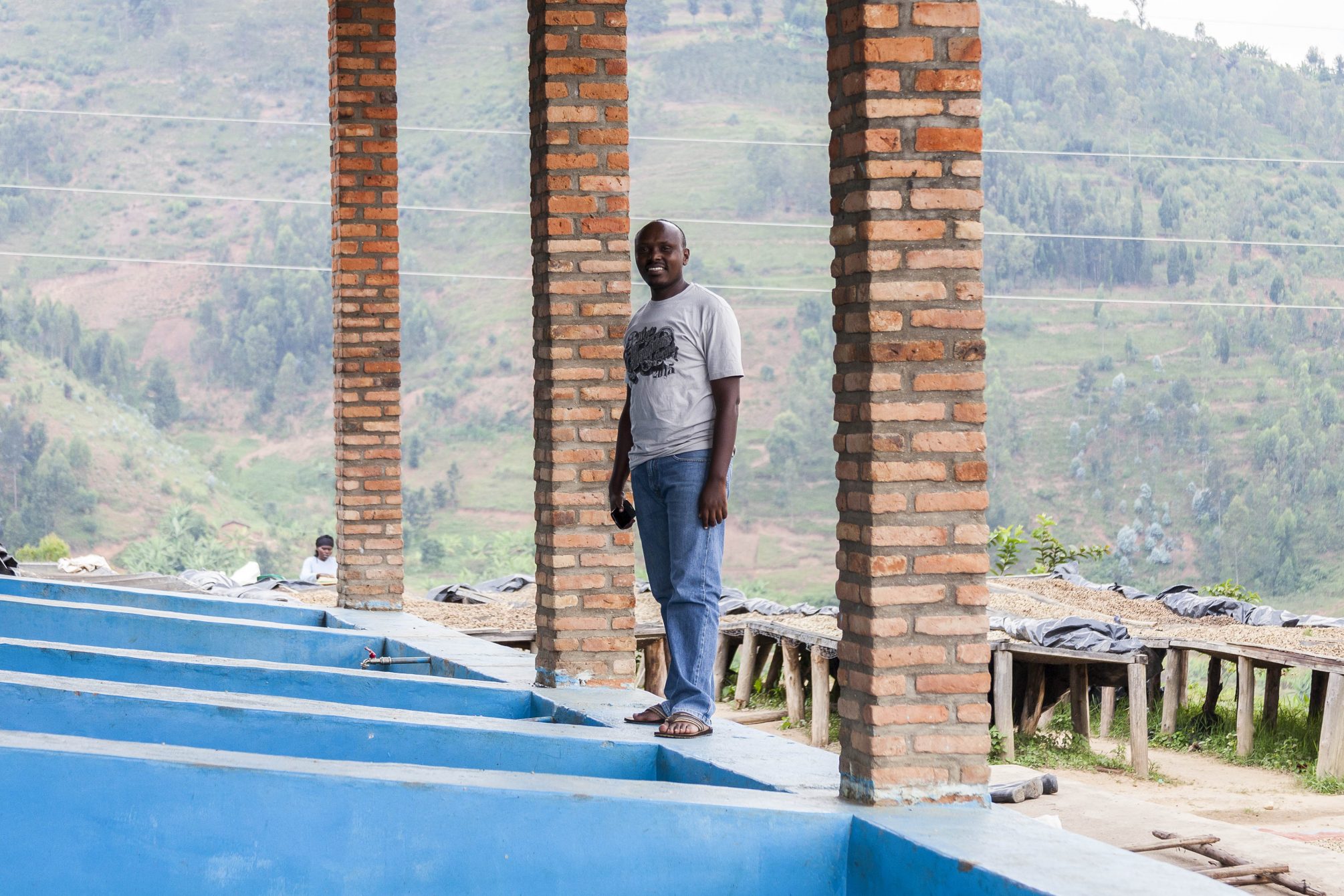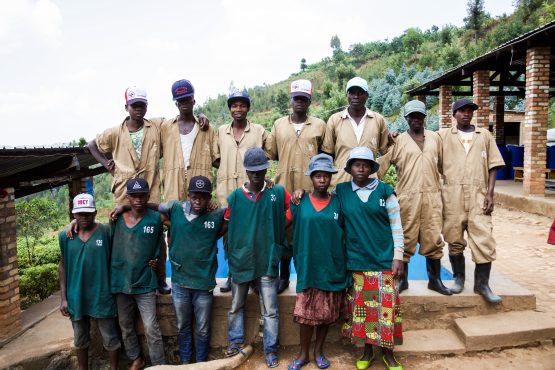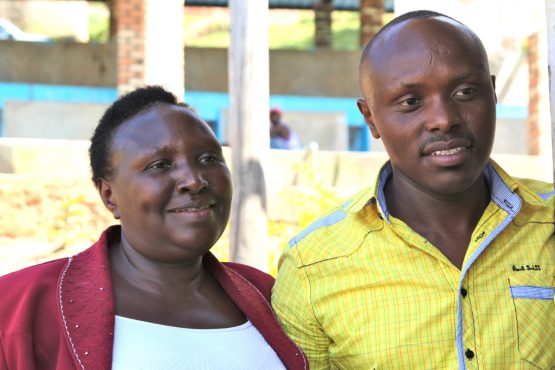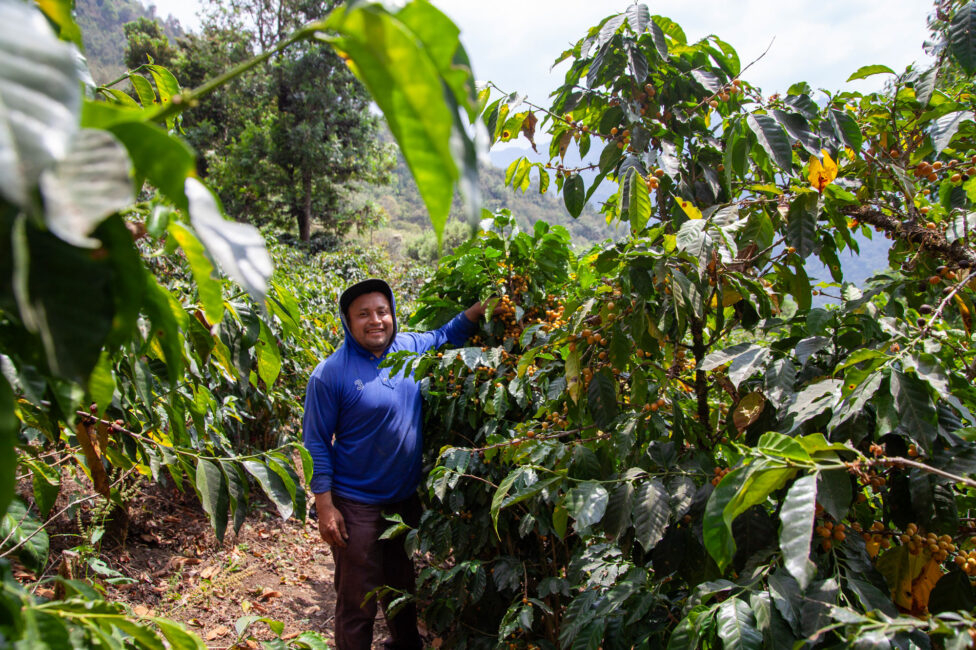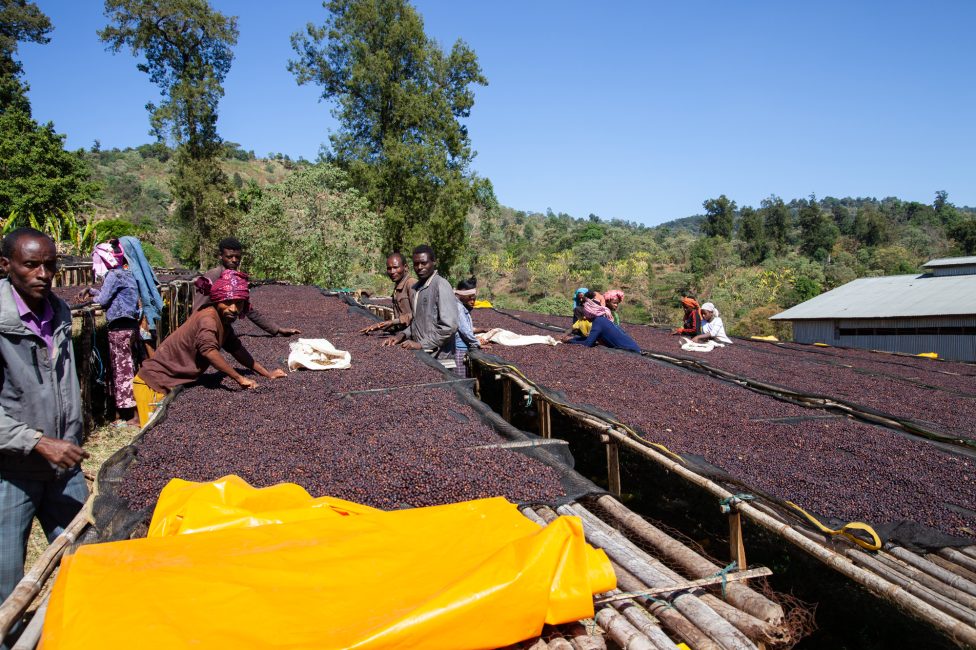Remera Natural Micro-Lot
Intense candy-like sweetness, juicy mouthfeel, and winey acidity with black cherry, muscatel, marzipan, rosehip and ripe strawberry jam.
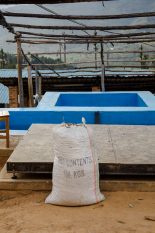 We are very excited and privileged to have some naturally processed coffee from Rwanda hitting our shores for the second consecutive year.
We are very excited and privileged to have some naturally processed coffee from Rwanda hitting our shores for the second consecutive year.
It is produced by Sam Muhirwa, who is one of the owners of Buf Coffee. Sam is the son of Epiphanie Mukashyaka and oversees the daily operations of Buf Coffee. Sam is extremely passionate about quality, and is curious, open and committed to finding new and creative ways to produce exceptional coffee. Over the last five years, Sam has been experimenting with small lots of naturally processed coffee and trying to work out the best way to produce exceptional results. We finally had the opportunity to purchase some of his naturally processed coffee last year, and loved it, so we have purchased more this year!
What we love the most about it is that is distinctively “Rwandan” in its cup profile. For us this is incredibly exciting. We often find naturally processed coffees loose some of the distinctive characteristics that reflect where they are grown, and the processing dominates the cup (so whilst we find them delicious, determining their provenance is practically impossible). In the case of the Rwandan Naturals however we have found them to be quite distinct; like all naturals they are incredibly sweet and fruit driven, but notes like black tea, rosehip and muscatels also shine through in the cup as well.
The coffee was processed at Remera washing station which is located at approximately 1,935 metres above sea level in the District of Nyamagabe, in the Gasaka sector, around 3 hours outside of Kigali.
ABOUT REMERA WASHING STATION
The Remera washing station is managed by Elias Dusabeyezu, who has been manager at Remera since 2007. The warehouse is impeccably managed by Alex Dushimimana and quality is overseen by an inspirational woman called Angelique Muhawenimana, who started her career as a coffee sorter and now heads up quality control at both of Buf’s washing stations. Together, they ensure that the coffee is harvested and processed with care and that production standards are kept at the highest possible level. Remera provides jobs for 60-80 people during the peak harvest and staffs seven permanent positions. At the end of each season, any surplus profits are shared with the producers and washing station managers.
The farmers that contribute to Remera washing station grow coffee at an average of 1,800 – 2,200m above sea level. This high altitude allows the beans to ripen slowly resulting in a coffee that is complex and intensely sweet. All of the water at the washing station is incredibly pure due to the washing stations proximity to the Nyungwe Rainforest and River Nile. This combined with the areas nutrient rich soil and high rainfall contributes to a transparent and clear cup. All of the water used by the station is cleaned using a water sanitation system, to clean and treat the water and remove all contaminates.
ABOUT BUF COFFEE
Buf Coffee was founded in 2000 by Epiphanie Mukashyaka, a dynamic businesswoman and a source of inspiration to countless other female entrepreneurs in Rwanda’s coffee sector and beyond. Buf is now managed by Mukashyaka—known to all as Epiphanie—and her sons, Samuel and Aloys, who have taken an active role in running and expanding the business. The name ‘Buf’ derives from ‘Bufundu’, the former name of the region in which its washing stations are located.
Epiphanie lost her husband, a child, and many extended family members in the horrific genocide in 1994. She was faced with the responsibility of caring for her seven surviving children and rebuilding their life. With a limited education and little money or support, Epiphanie, whose husband was a coffee farmer, decided to focus on coffee, and set about rebuilding and developing a business, and with it the local community. She started to learn more about speciality coffee with the assistance of the USAID-financed Partnership for Enhancing Agriculture in Rwanda through Linkages (PEARL) project, a transformational programme aimed at switching the focus of the Rwandan coffee sector from an historic emphasis on quantity to one of quality—and so opening up Rwanda to the far higher-earning specialty coffee market. The programme and its successor, Sustaining Partnerships to enhance Rural Enterprise and Agribusiness Development (SPREAD), have been invaluable in helping Rwanda’s small-scale coffee farmers rebuild their production in the wake of the genocide, and the world coffee crash, of the 1990s.
Epiphanie went on to establish Buf Coffee, and decided to build a washing station, with the help of the PEARL programme and a loan from the Rwandan Development Bank. ‘I came up with the idea to build this,’ she says, ‘and nothing was going to stop me’. She established Remera Washing Station in 2003 and Nyarusiza in 2005, and was the first woman in Rwanda to hold a privately owned company and produce specialty coffee. Her aim with the washing stations was to improve the quality of coffee by shifting the focus from producing commercial coffee to producing high quality specialty coffee. In doing so, she aimed to add value to her processed coffee in order to secure higher and more stable prices for coffee farmers in the region. As a result, she not only improved the livelihood of her family, but also improved those of her neighbour farmers and wider community, directly by increasing their income (through higher prices paid for their cherry) and, indirectly, by bringing important services like safe water and electricity to their villages via the establishment of washing stations.
Today Buf Coffee buys coffee cherries from as many as 7,000 smallholder farmers (approximately 3000 deliver to Remera Washing Station), including five different local cooperatives. Buf has very strong links with the local communities that supply it, providing jobs for hundreds of locals during peak harvest (May–June/July) and ten permanent positions year-round.
The majority of the small farmers that supply Buf Coffee in the area have an average of only 300 coffee trees each (less than a quarter of a hectare), and also use their land to cultivate crops like maize and beans to feed themselves and their families. Most of their income from the sale of coffee is used to send their children to school, pay for medical care, and for investment in livestock such as purchasing a cow for milk, which is then used at home and for sale locally.
Buf Coffee’s exceptional quality has been recognised year after year. It was awarded a prize in the 2007 Golden Cup; and placed in the Cup of Excellence in 2008, 2010, 2011, 2013, 2014 and 2015 (Note the Cup of Excellence was not held in Rwanda in 2016 or 2017).
HOW THE REMERA NATURAL IS PROCESSED
- The ripe cherries are carefully picked by hand and then delivered to the washing station. Before being washed the cherries are carefully sorted by hand and then deposited into flotation tanks, where a net is used to skim off the floaters (the less dense, lower grade cherries are removed). The heavier cherries are then carefully washed and taken to pre-drying beds where they are intensively sorted for around six hours.
- The sorted cherries are moved onto African beds in the sun to dry slowly over 30-45 days. (This is much slower than washed coffee—which dries in 2–3 weeks). The coffee is laid out in thin layers to ensure maximum and even exposure to the sun. During this time, the coffee is sorted carefully for defects, and turned regularly to ensure the coffee is drying evenly. It is also covered in the middle of the day when the sun is at its hottest.
- Once at 13% humidity, the dried cherries are stored in the washing station’s warehouse, in carefully labelled lots. Once the quality has been assessed and approved, the dried cherries are taken to the drying mill, milled, graded, and carefully sorted once more in preparation for export.
We have been working with Buf Coffee since 2009, and we feel privileged to work with such a dynamic, passionate, and committed family in Rwanda. We hope you enjoy this beautiful coffee.
